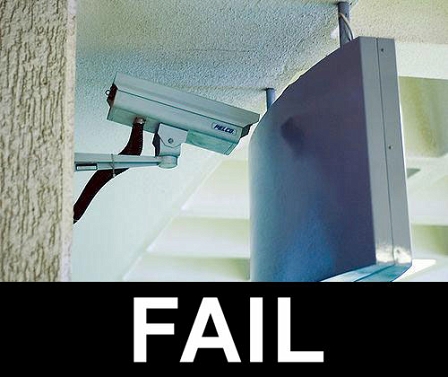Erstellt am: 12. 9. 2010 - 23:50 Uhr
What's Left Over? Technology and Failure
Digital art and culture is embedded in the cultural framework of technological developments. In the study of technological development and creativity, focusing attention on the failure, the error, the breakdown, the malfunction means: opening the black box of technology. Studies have convincingly demonstrated that the widespread inability to understand technological artifacts as fabricated entities, as social and cultural phenomena, derives from the fact that in retrospect only those technologies that prove functional for a culture and can be integrated into everyday life are “left over.” However, the perception of what is functional, successful and useful is itself the product of social and cultural, and last but not least political and economic processes. Selection processes and abandoned products and product forms are usually not discussed.
As part of paraflows 2010 I decided to host a panel on technology. And failure. I invited technologists, artists, designers, philosophers, namely Dmitry Kleiner (Canada/Germany), Adam Flynn (USA), Jane Tingley (Canada), Heather Kelley (USA/Canada) ... and they are pretty enthusiastic to analyze and discuss techfuckup - the wonderful and magic world of abandoned products, developmental derailments, sobering intermediary results and useless prototypes.

jg
A couple short statements ...
Dmytri Kleiner:
- to err is human, to really foul things up requires a computer.
- if architects built buildings the way programmers build software, the first woodpecker that came along would destroy civilization
- if the system does not fail, the design was not ambitous enough
- progress demands failure
Heather Kelley:
- Contrary to popular aphorism, failure isn't the best or only way to learn to do something. Doing something is the best way to learn to do it, and failure is simply the statistically likely outcome of a poorly understood and thus risky action, as natural and inevitable as its success.
Adam Flynn:
- Failure is most useful when we know it has actually happened and why. When they do not, failures cascade into catastrophes or sclerosis. But we rarely choose to face our failures (or chance of failures) with integrity. The increasing complexity of our modern world makes it more and more difficult to figure out our failures, setting us up for unexpected catastrophes, up to and including the extinction of human life. This is a bad thing.
Jane Tingley:
- Failure occures in every aspect of every project that I make. It shapes the work and leads to new poetic expressions. Without it, the experience of art making wouldn't be as engaging.

a. flynn
Where, when? Well, the best place is - of course - a hackspace.
So let's meet at Metalab (Rathausstrasse 6, 1010 Vienna) September 13, 2010; 8 PM.

